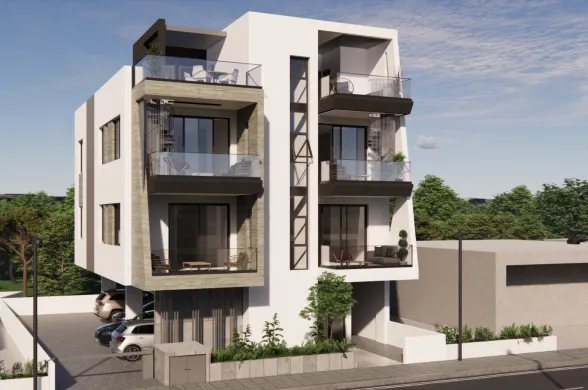Properties for sale in Cyprus
- New builds 978
- Apartments 849
- Villas 359
- Land 230
- Penthouses 223
- Village houses 83
- Townhouses 16
- Bungalows 8
- Show more
Property types in Cyprus
Popular searches
Districts in Cyprus
Frequently asked questions
How difficult is it to buy property in Cyprus?
Why is property so cheap in Cyprus?
Is buying property in Cyprus a good investment?
Can foreigners buy real estate in Cyprus?
How long does it take to buy a house in Cyprus?
Property prices in Cyprus
Our site lists 1,243 homes for sale in Cyprus, with prices ranging between €90,000 and €33,000,000.
The median listing home price in Cyprus is €595,000.
The median listing home price/m² is €3,816.
Limassol is the most expensive district in Cyprus, with a median listing home price of €670,000, while Larnaca claims the title of the most affordable area, with a median listing home price of €302,534.
New construction prices
There are 978 newly built homes for sale in Cyprus listed on DevelopersCyprus, and the range in price is between €118,000 and €33,000,000.
The median new development price in Cyprus is €550,000.
Guide to buying property in Cyprus
Cyprus real estate trends
The residential property market in Cyprus has been experiencing consistent price growth over the past three years. In 2022, the Residential Property Price Index (RPPI) published by the Central Bank of Cyprus showed an annual gain of 5,2%, indicating strong demand and limited supply.
This positive trend continued into 2023, with the RPPI recording a yearly increase of 7,7%, extending into the first three quarters of 2024. The latest data published by the bank shows YoY growth of 6,5% in 2024 Q3.
Cities and regions in Cyprus
The main cities and regions of Cyprus where you can buy properties are:
The regions of Cyprus are either coastal or close to the sea. Nicosia and Limassol are cosmopolitan and sophisticated, while Larnaca and Paphos are more relaxed. All are good places to live in terms of climate, family life and safety.
Choosing a location and property
When you decide where you are going to live, you may think about:
- What use will you make of the property – residence, business, holiday place or investment?
- How far will it be from your work and amenities?
- If you have children, is the area child-friendly and near schools and tutorial centres? Our website provides the distances to nearby schools for every residential listing.
- You might want a bigger place if you plan to have a larger family.
Property types to choose from
Cyprus offers an excellent variety of properties, including villas and detached houses for sale, apartments, penthouses and land for your own development projects. Check our listings for all the details.
All you need to know before buying a property in Cyprus
Can foreigners buy property in Cyprus?
- EU nationals are not restricted from buying property in Cyprus.
- Third-country nationals must apply for permission from the Council of Ministers. Obtaining the consent of the Council is a straightforward process. DevelopersCyprus or your lawyer will help you submit Form Comm. 145 for permission.
- British nationals fall into the category of third-country nationals after Brexit and require approval.
As of July 2025, the processing time for permission to buy property in Limassol is 30-45 days, while it takes 4-5 months in Paphos. For Larnaca, Nicosia, and Famagusta, allocating 1-2 months should be sufficient.
Professionals you need to get in touch with
The two professionals you need are a real estate agent and a lawyer.
The real estate agent knows the market, the developers, and how things are done. Real estate agencies operate according to a strict code of professional conduct and honesty.
The lawyer (or law firm) is there to help with the documentation, ensure that the proper legal process is followed and protect your rights. He/she will explain the relevant law and help you avoid problems. Also, the lawyer will perform due diligence, which means that he/she will search the land registry to find any charges, tenancies, planning rules or other burdens that may affect the property.
Additionally, you might need a currency exchange specialist to help with money transfers from abroad and the complexities of currency rates. Note that all Cyprus banks offer currency exchange services.
Buying without visiting the country
Buying real estate in Cyprus without visiting is possible by finding local professionals and using a proxy document. The proxy appoints a person (for example, a lawyer or real estate agent) to act as your agent and representative during the sale and transfer of land/ real estate or the rental agreement discussion and negotiations.
The proxy can be specific, that is, for a particular purpose or general, for general purposes.
The person appointed as your proxy is in a “fiduciary position”. This means that they must act in an honest, loyal and responsible manner towards you.
A foreign proxy document must be stamped and certified at the Cyprus Embassy or Consulate to be valid in Cyprus. The rule is the same whether your country is an EU member state or not.
What is the cost of buying property in Cyprus?
The extra costs of buying property in Cyprus include:
- transfer fees: 1.5% to 4% (applies only to resales),
- stamp duty: 0.15% to 0.2% (capped at €20,000),
- VAT on property: 5% to 19% (applies only to new construction).
All Cyprus banks offer mortgage deals with average rates at 3.78%. A stable source of income is necessary to get a mortgage.
With the mortgage to buy property, there must be a life insurance contract and one for fire and earthquake insurance (that is, insurance for the structure of the house or building). However, you do not need to have all three contracts with the same people; the bank cannot demand this. You can do the two insurance contracts separately.
Process of buying a property
Reaching an agreement
When you reach an agreement to buy the property, make sure that the important points have been clarified. Put all the important points in writing.
These important points are:
- price;
- method of payment (payment structure);
- location;
- which property is being sold;
- are there any mortgages taken on the property, and can the seller pay them;
- are there title deeds;
- what is the condition of the property;
- when can you move in;
- timeline.
Discuss any extras or repairs that may need to be made to the property. Agree on who will pay for them. Put these issues in writing.
The seller does not have to reveal all details (“no duty of disclosure”). However, if you ask a question, the seller has to answer truthfully. He/she must not use dishonesty to persuade you to sign, and he/she must not put inside contract terms that are inaccurate.
In any of the above situations, if the seller breaches (“breaks”) the contract, you have a claim against him/her. Going to court is expensive and takes a long time in Cyprus; first, you might wish to negotiate with the seller or discuss the matter with a third neutral person who will help with the problem.
The contract of sale
The contract of sale is the central point in the agreement. The lawyer should ensure that the contract is drafted clearly, in a manner that deals with your personal situation and contains the essential points mentioned above.
Please note that it is the buyer’s responsibility to stamp the contract of sale at the Inland Revenue. The stamp duty must be paid within 30 days of the contract's signing.
The buyer or the buyer’s lawyer registers the contract with the Land Registry.
The seller’s lawyer must provide a tax clearance certificate (i.e. show that all the taxes concerning the property have been paid). For more details, see below.
When the property is delivered, the buyer connects the utilities (water, electricity, telephone & etc.).
Filing the contract of sale
Filing the contract of sale with the district lands office is essential in protecting your property (see above).
Transfer through the Land Registry
After signing the contract and paying, the seller and buyer (“the parties”) will transfer the property through the Land Registry in Cyprus. For this, they must appear at the district lands office. If they appear in person, they must have an ID card or another document proving their identity. The parties can carry out the transaction (i.e. the transfer) through their authorised agents, such as their lawyers.
Forms to complete
- Form N. 270 (declaration of transfer of immovable property), attaching the property's certificate of registration (title).
- Form N. 313, which certifies that all taxes regarding the property have been paid.
Transfer fees
The buyer pays the transfer fees to the DLS. Our article explains how to calculate the transfer fee.
There is no transfer fee if VAT has been paid (see below).
Buying property without the title deeds
It is recommended that, before buying property without the title deeds, a buyer should try to find out why title deeds have not been issued.
A Land Registry search, carried out by a lawyer at the Land Registry, will show any mortgages and other useful information about the property.
Although buying without title deeds is not recommended, there is protection for the buyer who buys mortgaged property.
For contracts signed before 12 December 2023, the buyer may repay the existing mortgage and, if the seller does not transfer the title (title deeds), ask the court for a specific performance order against the seller. The effect of this order is to make the seller fulfil their obligations, i.e. transfer the property.
For contracts signed after 12 December 2023, protection is enhanced by an amendment to the Sale of Property (Specific Performance) Law 2011 by Law 132(I)/ 2023.
Under the new rules, the seller should get a search certificate for the property from the Department of Lands and Surveys (DLS). This is a document showing any mortgages. The search certificate will be included in the contract of sale and must not be more than 5 days older than the date of signing the contract.
Then the seller and lender will sign a declaration that if the buyer pays 95% of the mortgage, they will release the property so that the DLS can transfer it to the buyer. If they fail to do that, the DLS will transfer the property anyway, provided the buyer brings a receipt that they have repaid the mortgage.
There are strict administrative fines for sellers who fail to observe the new rules.
Buying property in Cyprus for residency
In 2025, foreigners can buy a property and get Cyprus permanent residency if:
- The property is valued at least €300,000 plus VAT;
- The applicant has at least €50,000 in annual income from abroad.
- The applicant does not take up any paid work in the Republic.
If you do not meet the criteria mentioned above, purchasing property in Cyprus will be of help if you wish to apply for any of the following residence permits (or “visas”):
- Cyprus category F residency (requires a yearly income of at least €9,568 for one applicant plus €4,613 for each dependent person)
- Work permit
- Category C and E
- Freelance visa (also known as the Pink slip, requires a yearly income of at least €24,000 for a single applicant, plus 20% for a spouse and 15% for each child)
Foreign nationals can acquire Cyprus citizenship after residing there for 4 to 8 years, depending on their proficiency in the Greek language.









































